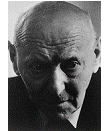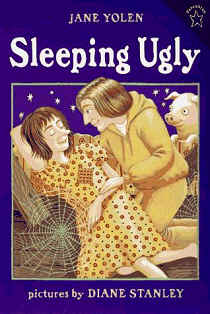|
Text 1
About the author
Singer, Isaac Bashevis , 1904 ─ 1991, American novelist and short-story writer
in the Yiddish language, younger brother of I. J. Singer, b. Poland. He emigrated
to the United States in 1935 and worked in New York City as a journalist on
the Jewish Daily Forward. In 1943 he became an American citizen. Singer's work draws heavily on Jewish folklore, religion, and mysticism.
Though he wrote in Yiddish, he was fluent in English and closely supervised
the English translations of his works. In 1978 he won the Nobel Prize in Literature,
the first Yiddish-language author to be so honored. Many of his later works
treat the loneliness of old age and the sense of alienation produced in Jews
by the dissolution of values through assimilation with the Gentile world. His
novels include The Family Moskat (tr. 1950), Satan in Goray (tr. 1955),
The
Manor (tr. 1967), Enemies (tr. 1972), Shasha (tr. 1978), The Penitent (tr. 1983),
Scum (tr. 1991), and the posthumously published Shadows on the Hudson (tr. 1997).
Singer is also highly regarded for his imaginative, perceptive, and witty short
stories. Collections include Gimpel the Fool (tr. 1961), The Spinoza of Market
Street (tr. 1961), Old Love (tr. 1979), and The Death of Methuselah (tr. 1985).
He also wrote books for children and several plays, notably The Mirror (tr.
1973). translations of his works. In 1978 he won the Nobel Prize in Literature,
the first Yiddish-language author to be so honored. Many of his later works
treat the loneliness of old age and the sense of alienation produced in Jews
by the dissolution of values through assimilation with the Gentile world. His
novels include The Family Moskat (tr. 1950), Satan in Goray (tr. 1955),
The
Manor (tr. 1967), Enemies (tr. 1972), Shasha (tr. 1978), The Penitent (tr. 1983),
Scum (tr. 1991), and the posthumously published Shadows on the Hudson (tr. 1997).
Singer is also highly regarded for his imaginative, perceptive, and witty short
stories. Collections include Gimpel the Fool (tr. 1961), The Spinoza of Market
Street (tr. 1961), Old Love (tr. 1979), and The Death of Methuselah (tr. 1985).
He also wrote books for children and several plays, notably The Mirror (tr.
1973).
More about the story
The story has been very popular and has been adapted to the stage. The following
is a comment on a version of chamber opera. It can help you understand the story.
The chamber opera Fool's Paradise is inspired by distinguished Yiddish
writer and Nobel Prize laureate Isaac Bashevis Singer's story of the same name.
How is it that such a short children's story should be worthy of an entire opera?
While it is a simple tale, it encompasses the full scope of life's experiences.
Childhood, adolescence, love, death, burial, resurrection and wedding all serve
to make this a dramatic story which is bigger than life.
The opera is intended for children. In approaching such a project one must question
whether composing especially for children is any different from composing for
adults. Children do not ask for much; they have a great deal of intuition and
a wealth of imagination. In fact, in many ways all they ask of the adult author
or composer is to speak to them in clear simple language and allow for some
mystery and magic. Ignite their imaginations and they can do the rest on their
own!
There are seven characters in the opera. Each one of them is attached to an
instrument or a specific group of instruments. The diversity of instrumentation
and unique orchestration made the use of symphonic orchestra unnecessary. There
is, in fact, no doubling of instruments except for the clarinets. The importance
of each part is dramatically increased as the soloists display the full palette
of their instruments' abilities. This use of only one instrument of a kind results
in a large chamber ensemble with a new quality of sound and acoustic balance.
Finally, there is the beautiful message of "Fool's Paradise". In its
absurd way, a simple but important moral lesson is conveyed: life is better
than death and wonderful Paradise is nowhere else but here
— on earth. This is
a lesson relevant to everyone, children and grown-ups alike.
Language notes
1. It was taken for granted that when
they grew up they would marry.
(人们理所当然地认为,他们长大成人后就会结婚。)
To take something for granted means to believe something to be true
or certain to happen .
2. In paradise one ate the meat of wild
oxen and the flesh of whales; one drank the wine that the Lord reserved for
the just; one slept late into the day; and one had no duties.
(在天堂里,人们吃野牛和鲸鱼的肉;喝上帝专门为正直的人准备的酒;白天睡到很晚才起床;
没有什么义务要承当。)
Just here is an adjective, meaning honorable and fair. The just refers to those
people who are just. 注意定冠词与某些形容词或分词搭配,可以表示某一类的人或某一类的事情或概念,例如:
The sick (病人)are here very well cared for.
The young (年轻人)are impatient; they want changes.
The oppressed (被压迫者)and the exploited (被剥削者)all look forward to their liberation.
There will always be such opposites as the right and the wrong(对与错), the good
and the evil(善与恶), the beautiful and the ugly(美与丑).
3. The boy lay on his bed, pale and
thin from fasting.
(这个孩子躺在床上, 由于禁食而脸色苍白, 身体消瘦。)
Fast means to eat little or no food, esp. for religious reasons. Note the preposition
from here means because of, as a result of.
e.g. She suffered from heart disease.
She was exhausted from all the sleepless nights.
The explorers died from cold before they reached the North Pole.
4. The doctor requested that a room
be prepared to look like paradise.
(医生要求他们准备一间看上去象天堂一样的房间。)
Note that after the word requested the that-clause is in the subjunctive
mood.
5. Atzel was beside himself with joy.
(阿采尔欣喜若狂。)
Beside oneself means in a state of such great emotional excitement or confusion
that one lacks self-control. 该习语后面常跟"with"做原因状语,介词with的宾语常见的还有anger,
fear, grief, hatred等。
6. It was not until after the wedding
that Atzel learned how Dr. Yoetz had cured him, and that he had lived in a fool's
paradise.
(直到婚礼之后阿采尔才知道犹兹大夫是怎样治愈他的,知道自己曾经生活在愚人的天堂。)
Not until is used when we talk about an action that does not happen before the
given moment.
Text 2
About the author
 Jane Yolen has authored or edited more than 200 books, mostly for children.
Some of her titles include the Caldecott Medal book Owl Moon, the Mythopoeic
Fantasy Award novels Cards of Grief and Briar Rose (both for adults) and the
"Young Merlin Trilogy" (for young readers). She has also written the
"Books of Great Alta" including Sister Light, Sister Dark and
White
Jenna for adults. Perhaps for her short stories, Jane has been called a Hans
Christian Andersen for our time. Jane Yolen has authored or edited more than 200 books, mostly for children.
Some of her titles include the Caldecott Medal book Owl Moon, the Mythopoeic
Fantasy Award novels Cards of Grief and Briar Rose (both for adults) and the
"Young Merlin Trilogy" (for young readers). She has also written the
"Books of Great Alta" including Sister Light, Sister Dark and
White
Jenna for adults. Perhaps for her short stories, Jane has been called a Hans
Christian Andersen for our time.
About the story
If you haven't read Sleeping Ugly by Jane Yolen you are missing out on one of
the best modern fairy tales of all times. Yolen's sophisticated sense of humor
fills page after page of this twisted tale. Girls and boys alike will be happy
to see the rightful victor for once at the end of this story.
Consider how Yolen creates her characters. They all have distinctive looks,
personalities and backgrounds. Students can experiment with just creating their
own characters and sharing these creations. Also compare Sleeping Ugly to
Sleeping
Beauty and practice making statements and backing them up with examples.
More comments on the story
In this story (which is not to be missed!) many of the usual things happen but
it is all jumbled up into a frothy tale — with a gentle moral about beauty. This
story does have a beautiful Princess, a sleeping curse and a wake-up kiss! It
is about the antics and misfortunes of Princess Miserella who is beautiful on
the outside and ugly on the inside and Plain Jane who is ugly on the outside
and beautiful on the inside and a Fairy godmother who gets so angry at both
of them that she casts a sleeping spell that puts everyone asleep ─ including
herself! Enter an impoverished prince who had read his share of fairy tales
so that he knows just what he is supposed to do ─ except he has never kissed
anyone before! So who will he kiss? And then what?

This is one mean, rotten princess, ladies and gentleman. She kicks kittens
and she throws pies in the cook's face. She's beautiful on the outside, but
wickedly, wickedly cruel on the inside. She is Princess Miserella, and she is
about to have a Very Bad Day.
We are also introduced to Miss Plain Jane, a sweet, kind and righteous soul
who lives in a small cottage in the woods. Jane has many, many animal friends.
So
many, in fact, that unfortunately her little cottage stinks. Yet, through it
all, she is a good and kind person!
While galloping through the woods one day, kicking her horse, Princess Miserella
was thrown from the steed and left to her own affairs within the thickets. She
comes across an old woman sleeping under a tree, who is in fact a fairie. She
gives her a good, hard kick on the soles of the feet to wake her up, and the
Fairy realizes at once that this is going to be a Very Bad Day for Princess
Miserella.
The remainder of the book is devoted to Princess Miserella getting her just
desserts. The Good Miss Jane is offered three wishes, and misuses them all by
bailing out the horrible Miserella each time she annoys or angers the Fairy.
All three people are accidentally put to sleep when the Good Fairy makes an
error in judgment with her wand, and they are awoken hundreds of years later
by-guess who? You guessed correctly — a handsome prince! I love the thought processes
running through the Prince's head as he observes the three creatures and wonders
who to kiss first, all the time calling himself a "pauper with absolutely
nothing to offer".Not to mention he had never kissed anyone else before, except for his mother,
but that didn't count. Nor his father, since he had a scratchy beard.
This book is all about opposites and paradox and done so well to achieve that
flabbergasting reverse effect in our mindsets.
The concept of Good versus Evil and what is beautiful on the outside not necessarily
being beautiful on the inside is illustrated quite well in this book. The prose
is very funny, with witticisms from both the good fairy and Plain Jane bound
to tickle the funnybone of any third or fourth grader. I would recommend this
book for the ages 6 to 12, since the universal appeal of a Princess Ugly rather
than Beautiful is bound to intrigue the children.
Language notes
1. In that
very same kingdom, in the middle of the woods, lived a poor orphan named Plain
Jane.
(在同一个王国,在树林深处,住着一个贫穷的孤儿,叫普莱恩·简。)
The word plain is an euphemistic expression to describe a person, especially
a woman, who is not pretty or good-looking or rather ugly. The name Plain Jane
informs the reader immediately of the girl's not good-looking appearance.
2. One day
Princess Miserella rode out of the palace in a huff.
(一天, 米萨雷拉公主乘着怒气出了皇宫。)
In a huff is originally a phrase meaning in a state of bad manner. Here
the author relates a huff to a carriage for humorous effect.
3. But Jane
made the best of it.
(简却充分利用了小屋。)
Make the best of means to make the best use of.
e.g. They made the best of the situation.
4.Plain
Jane smiled a thin little smile.
(普莱恩·简淡淡地笑了笑。)
Thin here means lacking in strength and fullness.
5. Just
to be mean, Miserella stamped her foot again.
(只是为了讨人厌,公主又跺了跺脚。)
Mean here means offensive.
6. But because
he was the youngest son of a youngest son, with no gold or jewels or property
to speak of, he had never kissed anyone before, except his mother, which didn't
count, and his father, who had a beard.
(但是,由于他是最小的儿子的最小的儿子,
根本没有什么金银珠宝或财产,他也就没有吻过任何人。除了他母亲(但那不能算),和他那有着一把胡须的父亲。)
注意with …to speak of的结构。这样的例子还有:
With nothing to be proud of, he worked very hard and very quiet.
With too many things waiting to be done, he had to chose the most urgent ones.
TOP |
